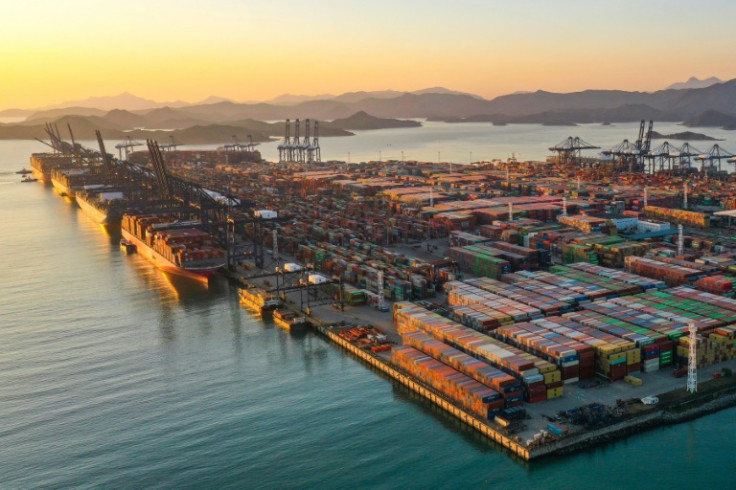Stocks waver in end-of-year trading
Stock markets diverged on Wednesday as investors looked for a traditional "Santa Claus rally" to close the year.

Stock markets diverged on Wednesday as investors looked for a traditional "Santa Claus rally" to close the year.
The "Santa Claus rally" is a seven-session stretch over the weeks of Christmas and New Year that typically sees stocks drifting higher amid light trading volumes.
London, back after a four-day Christmas break, was up 0.8 percent from its Friday close, but Paris and Frankfurt sputtered.
Wall Street, however, opened higher after a mixed session the previous day as the yield on the 10-year US Treasury note -- a proxy for Federal Reserve interest rates -- fell.
Tech companies are more sensitive to higher rates. Investors also worry that rising borrowing costs will tip the economy into deep recession.
"Checking in on Santa Claus, he hasn't left the building but he seems somewhat stuck in a revolving door," said Briefing.com analyst Patrick O'Hare.
AvaTrade analyst Naeem Aslam cautioned that "trading volume continues to remain on the low side" with many investors away for an extended holiday.
China's moves to reopen also revived inflation worries.
Beijing has abruptly reversed tight pandemic curbs that kept the world's second-largest economy isolated since 2020.
On Monday, Beijing announced it was ending quarantine measures for overseas arrivals from January 8, the latest move to loosen its zero-Covid regime, after it dropped mandatory testing and lockdowns earlier this month.
China's scrapping of curbs has spurred hopes for its economic revival.
"The good news is that inflation subsides as China reprises its role as a supplier of low-cost goods globally and supply chain bottlenecks ease," said analyst Stephen Innes of SPI Asset Management.
However, he also warned that China's accelerating demand would push up prices for commodities, in turn further fuelling global inflation.
Meanwhile, Hong Kong stocks jumped as investors digested the Covid news from Beijing on the first trading day after the Christmas break.
Hong Kong chief executive John Lee also announced a further easing of the city's remaining Covid measures.
Oil traders also remain on tenterhooks after Moscow on Tuesday banned exports to countries complying with a price cap on its crude, briefly lifting the market.
The price ceiling of $60 per barrel agreed by the European Union, G7 and Australia came into force in early December and seeks to restrict revenues for Russia, amid its ongoing war on Ukraine.
"The ban of exports for nations adhering to Russian price caps adds fuel to the anxieties around supply," said Hargreaves Lansdown analyst Sophie Lund-Yates.
"This comes at the same time as China plans to reopen, which means oil demand is set to surge.
"While supply and demand dynamics continue to compete in this way, the oil price will remain elevated."
New York - Dow: UP 0.3 percent at 33,228.09 points
London - FTSE 100: UP 0.8 percent at 7,531.47
Frankfurt - DAX: DOWN 0.1 percent at 13,985.35
Paris - CAC 40: FLAT at 6,549.45
EURO STOXX 50: DOWN 0.1 percent at 3,830.75
Tokyo - Nikkei 225: DOWN 0.4 percent at 26,340.50 (close)
Hong Kong - Hang Seng Index: UP 1.6 percent at 19,898.91 (close)
Shanghai - Composite: DOWN 0.3 percent at 3,087.40 (close)
Euro/dollar: UP at $1.0656 from $1.0640 on Tuesday
Pound/dollar: UP at $1.2112 from $1.2025
Euro/pound: DOWN at 87.99 pence from 88.48 pence
West Texas Intermediate: DOWN 1.5 percent at $78.35 per barrel
Brent North Sea crude: DOWN 1.5 percent at $83.38 per barrel
© Copyright AFP 2025. All rights reserved.

















